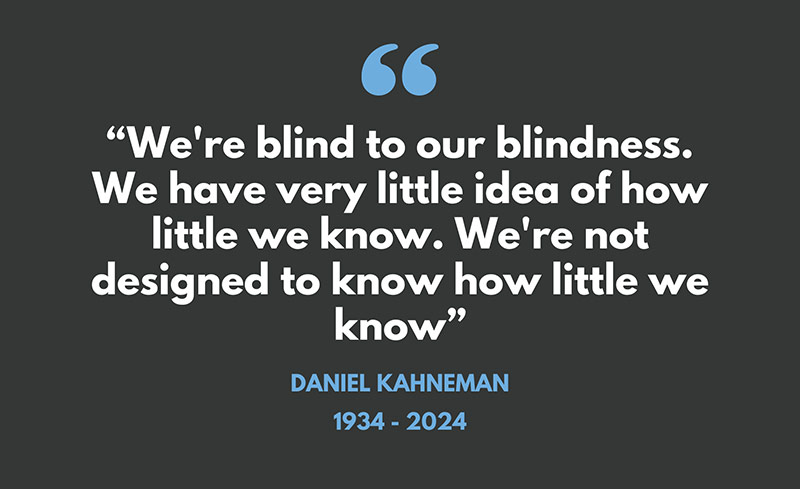
What should you know?
Daniel Kahneman, Nobel prize winner and author of the acclaimed book “Thinking Fast and Slow”, sadly passed away in March. He was best known for his work in the field of behavioural economics, where he pioneered research into the irrationality of human decision making, particularly relating to investing.
He identified numerous cognitive biases that impact our decisions, many of which are prevalent and influential in our financial choices.

Two of the biases identified by Kahneman, that I often see in my financial planning work are overconfidence bias and herd mentality. These are defined as follows:
Overconfidence Bias: Some investors believe, either consciously or subconsciously, that they have more information or skill than they actually possess. They can become over-confident in their ability to predict market movements and to pick ‘winning’ investments.
Herd Mentality: Investors tend to follow the crowd, even when it may not be in their best interest to do so. This herd mentality is what can lead to market bubbles and crashes as investors collectively overreact to new information and trends.
Why should you care?
Overconfidence can manifest itself in many ways. Some investors actively trade investments in the belief that they have a special ability to pick the right stocks, others over-expose themselves to a single stock or asset type, assuming it will always continue to go up just because it has been successful in the past.
Herd mentality, which is strongly supported by the ‘fear of missing out’ (FOMO), can lead people to jump into popular trends and investment fads without fully understanding the risks involved.
Being aware of the presence of these biases and setting a framework to counteract them is crucial to making better financial decisions. Working with a financial planner, who understands the human side of money can guard you against these biases and help you identify risks you may not have thought of.






